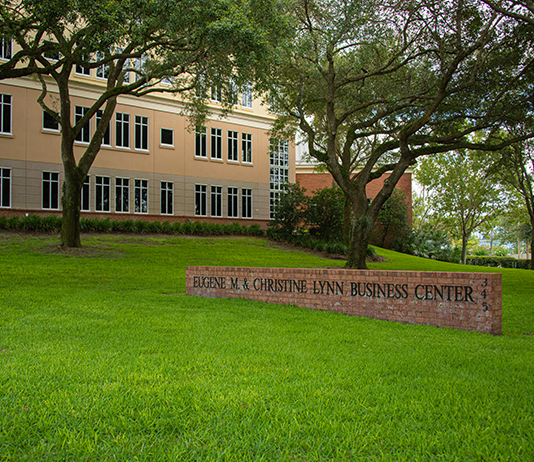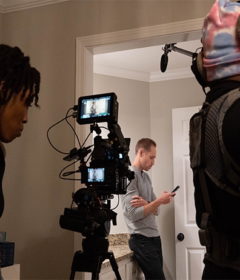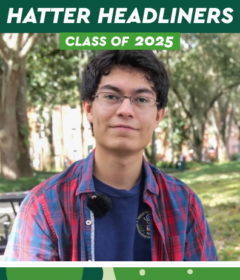Social Entrepreneurship in the Pandemic

Over the summer, Lou Paris, MBA, posed a challenge to students in his remote social entrepreneurship class: Find an area of need in our COVID-19 environment and come up with the solution to fill it.
Paris, assistant professor of practice, management, wanted students to ask themselves: ‘Can I fix this problem for this person, and are there more people than this person who would benefit from a solution?”
Weeks later, Randall Croom, PhD, assistant professor of management, asked the same of his remote students, with an emphasis on this approach: make a positive difference as business entrepreneurs.
“I tell students you can do well and do good at the same time, and here’s a way you can do that,” Croom noted via videoconference in July.
In turn, the students — mostly business majors but also including others from across Stetson — set out to develop projects, and perhaps create actual business startups, that respond to the COVID-19 crisis in their communities.
The School of Business Administration even offered the incentive of a few hundred dollars to help support projects that proved worthy.
“Some of them [projects] might turn into social enterprises that could have a life beyond [COVID-19],” said John Tichenor, PhD, associate professor of management and chair of the management department. “So, the students would be starting their own businesses, essentially.
“I told Randall and Lou that these might just be good courses, and nothing comes out of it. And, if that’s the case, no problem. The students would have thought about the crisis and how entrepreneurialism can address social issues, and that would be enough. On the other hand, one of these student projects might really get a fire lit, and something develops.”

As such, not only did the pandemic change how students learned over the summer, the pandemic also served to teach. And, while it’s a bit too early for such projects to truly come to fruition, the ideas were bountiful, both Paris and Croom agreed.
At the core of social entrepreneurship is helping others and serving the greater social good. Paris, for example, spent time discussing empathy in a business context, but also with the premise that social entrepreneurship doesn’t automatically mean nonprofit.
That thinking was shared by Croom, who commented, “Social entrepreneurship goes beyond philanthropy. It creates new value, and in many cases uses that new value to solve old problems.”
As a result, generating income was part of the lesson plan, too.
‘Valuable and Cool Ideas’
Regarding projects, Paris’ lone rule was that students work only on ideas that surrounded the pandemic. Teams of students went out into the community and contacted business that ranged from restaurants to schools to gym facilities.
“Given all of the challenges that this project presented, every single team came back with valuable and cool ideas,” noted Paris, also the assistant director of the Prince Entrepreneurship Program.
Three groups emerged. One centered on using digital/QR code restaurant menus instead of printing potentially costly menus. The solution offered varying layers of digital complexity.
A second group imagined an Airbnb concept designed to connect people who are victims of domestic violence with families and places where they could temporarily stay to avoid continued abuse.
The third group looked at innovative education platforms that could accommodate different methods of online learning.

“[The projects] are all very relevant because they affecting our community,” Paris said.
Croom’s lessons included an exploration of passion and how passion could lead to multiple opportunities and enterprises while also possibly leading to “blind spots” in social enterprises.
“Passion as fire,” he explained. “If you think about fire, it keeps us warm; it can provide some light. But it’s only really good in controlled environments.”
He asked students to create projects that either dealt directly with COVID-19 or were highlighted by the pandemic.
One group of the students focused on elderly loneliness, addressing needed personal connections that have been taken away in this time. The idea was based on robotics.
A second group delved into the issue of food insecurity — helping people eat healthfully at home by providing box-food garden starter sets.
Another idea involved beach cleanup — charging a “deposit” to go on the beach, which would be returned in exchange from trash retrieval during the beach stay.
Finally, a fourth group worked on ways of reducing restaurant waste and focused on hunger and alternative food distribution.
The pandemic served to teach.
“It does make you feel happy, grateful, excited that people are using their minds and hearts and business training to try and have an impact on the world,” Croom concluded.
-Michael Candelaria



